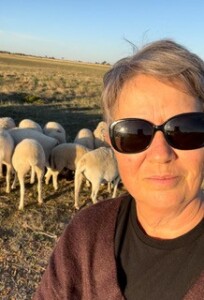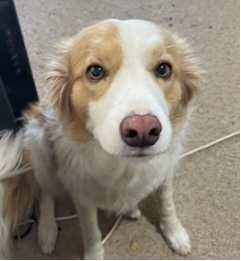Monica Graham is one of our amazing Cancer Support Coordinators and is situated in the Wheatbelt region of Western Australia.
Our Cancer Support Coordinators are located both in metro and regional areas to help guide people through their cancer journey. They provide practical information, emotional support and can connect anyone affected by cancer to local services and support groups.
Read on to get to know more about Monica’s role as Cancer Support Coordinator.
Q&A with Monica Graham

Pictured: Monica Graham
Tell us a bit about your role as a Cancer Support Coordinator
I work a remote role based in the Wheatbelt. I work from my home office and communicate with clients via the telephone or if the internet is available, then online. This works in these regions, I think because people are so used to not having face-to-face services readily available and are so busy with appointments and treatment, that a phone call is their best use of time.
What areas of Western Australia do you support?
I support clients in the Wheatbelt, Pilbara and Kimberley.
What are some of the challenges faced by West Australians in the regions you support?
The challenges common to the regions is transport to centres offering treatment as well as accommodation in Perth. People in the Wheatbelt mostly have to drive to appointments and treatment, some doing 700 to 800km round trips with only minimal financial support.
Cost of living can be a lot higher in the regions with a lot of clients not having access to the bigger supermarket chains and paying higher amounts for fuel. People may end up in hotels in Perth if our lodges are full, with no ability to cook for themselves so the cost is a lot higher. Also the hotels in Perth are expensive and the rebate from the Patient Assisted Travel Scheme (PATS) only covers a portion of the costs.
Something that was interesting for me when I first started working with the Pilbara and Kimberley is that there are people in those regions who have never left their town or community and have never visited Perth. They then face the challenge of navigating an unfamiliar and sometimes overwhelming environment while dealing with the side effects of treatment. Post treatment care is also not readily available in the regions, with a lack of allied health and rehabilitation services and support.
What difference do you see yourself and other Cancer Support Coordinators making?
Until you are diagnosed with cancer, you don’t have to know what support and services are available to you and once diagnosed clients often don’t know where to turn. The Cancer Support Coordinators are aware of the supports available in their regions as well as nationally and are able to steer clients towards the support they need. We work closely with the Cancer Services Teams in our regions to ensure that clients are getting both clinical and psycho-social support. The CSC’s also share knowledge of support services with each other in order to better support our clients.
What do you enjoy doing in your spare time?
We purchased our home (built in 1910) situated on 146 acres in the Wheatbelt two years ago, and we have spent the past two years cleaning and renovating around the yard with our next challenge being the house.

Pictured: Monica’s Dog, Sadie
We run sheep on our property and one of my favourite things to do is to stand and watch their antics, especially the lambs, and be thankful for what we have. I also love to bake and have a home baking business, so I am kept pretty busy. What I most enjoy however is spending time with family and friends, especially my three beautiful grandchildren. I love to be able to cook for them and to spoil them as only a grandparent can do.
What would you say to Cancer Council WA’s generous donors?
Thank you so much for what you do!
People impacted by cancer face many challenges in the regional areas with distance to treatment centres and the added cost of accommodation during treatment. Because they are away from home they are often not able to maintain a job, adding to the stress of their situation.
The people I work with are extremely appreciative of the support we are able to give them both financial and psychosocial at a time when they feel their life is out of their control.
Thank you for giving them that support.
Find out more
- Read more about our support services
- Get in touch with our 13 11 20 Cancer Information and Support Line